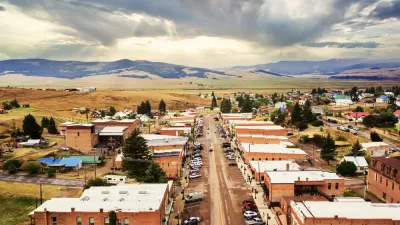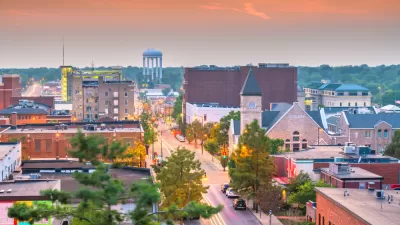Hopefully you were able to enjoy some summer sun on this Fourth of July. If you're among the many Americans who helped propel population growth in the country's warmer states over the last century, you likely did.
A recent review of the causes of city population changes in the United States published by the Federal Reserve Bank of Boston brings to light an often overlooked factor: warm weather.
"It's easy to overlook weather as a legitimate living factor, if only because the idea of moving somewhere just for the sunshine feels a bit too simplistic," writes Eric Jaffe. "And for sure, the reasons why certain cities grew faster than others in the 20th century are as numerous as they are complex. But when urban scholars have studied population changes during this period, they've routinely found a pleasant climate to be a powerful draw."
"Now it bears repeating that nice weather, while easy to overlook as a factor for city growth, was definitely not the only reason people moved to certain places in recent times," he adds. "A desire for space and suburbia pulled Americans toward some metro areas, and the decline of U.S. manufacturing pushed them away from others. The general skills and education of a population also influenced its residential choices. Above all, the expansion of transportation options facilitated all types of local migrations."
"But even if sunshine isn't the exhaustive reason people settle somewhere, hopefully we all get a reminder this Fourth of July why it's often been a big one."
FULL STORY: How Sunshine Shapes Cities' Population Growth, in One Chart

Maui's Vacation Rental Debate Turns Ugly
Verbal attacks, misinformation campaigns and fistfights plague a high-stakes debate to convert thousands of vacation rentals into long-term housing.

Planetizen Federal Action Tracker
A weekly monitor of how Trump’s orders and actions are impacting planners and planning in America.

Chicago’s Ghost Rails
Just beneath the surface of the modern city lie the remnants of its expansive early 20th-century streetcar system.

Bend, Oregon Zoning Reforms Prioritize Small-Scale Housing
The city altered its zoning code to allow multi-family housing and eliminated parking mandates citywide.

Amtrak Cutting Jobs, Funding to High-Speed Rail
The agency plans to cut 10 percent of its workforce and has confirmed it will not fund new high-speed rail projects.

LA Denies Basic Services to Unhoused Residents
The city has repeatedly failed to respond to requests for trash pickup at encampment sites, and eliminated a program that provided mobile showers and toilets.
Urban Design for Planners 1: Software Tools
This six-course series explores essential urban design concepts using open source software and equips planners with the tools they need to participate fully in the urban design process.
Planning for Universal Design
Learn the tools for implementing Universal Design in planning regulations.
planning NEXT
Appalachian Highlands Housing Partners
Mpact (founded as Rail~Volution)
City of Camden Redevelopment Agency
City of Astoria
City of Portland
City of Laramie





























